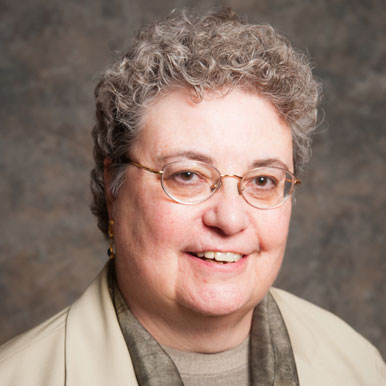Spent a career breaking barriers and advancing the health-care needs of women in a male-dominated veterans health-care system.
After more than two decades as an outspoken advocate for improving health care for female veterans, Patricia Hayes is now leading an ambitious Department of Veterans Affairs (VA) initiative to make the male-dominated medical system more responsive to the growing number of women who have served in the military.
As chief consultant on womens health care, Hayes has been responsible for the VA adopting a set of best practices for female patients, training more than 1,200 providers in womens health, designating 144 full-time female program managers around the country to promote health services for women, and driving a culture change initiative to make VA employees more responsive to women.
She has helped make more readily available basic gender-specific services such as breast examinations, cervical cancer screening, menopause management, obstetric care and treatment of reproductive cancers. Hayes also spearheaded an outreach campaign to notify female veterans that there are services available at VA clinics, and by next year, she expects comprehensive primary care to be available for women at all VA medical facilities.
“Patricia Hayes’ vision and commitment to this under-recognized population has raised the quality of VA health care for women veterans and the nation’s recognition of their service,” said Dr. Laure Veet, the VA’s director of womens health education.
The number of women using VA services doubled from nearly 160,000 in 2000 to more than 337,000 in 2011, and that increase is expected to continue over the next decade due in part to the deployment of women in the Iraq and Afghanistan wars. There are approximately two million female veterans, with 17 percent using VA services and more than half of those women having a service-connected disability. Women currently comprise approximately 14.5 percent of the active duty military, 18 percent of the National Guard and Reserves, and 5.9 percent of VA health care users.
When Hayes first came to the VA in 1984 as a psychologist to work with Vietnam veterans, there were few female patients and almost no gender-specific services available. Following the Gulf War in 1990, the number of female veterans started increasing, but the VA did not have clinicians trained in womens health or even separate changing rooms or private bathrooms for women.
Dr. Madhulika Agarwal, the VA deputy undersecretary for health policy and services, said the VA for many years lacked standards for women and a full understanding that women had special health needs that were not being met.
“Patty has helped change the whole face of how services are now constructed and then delivered in the field,” said Agarwal. “She has been very effective in changing the culture, which is the hardest thing in any organization.”
Hayes early on recognized the shortcomings in the VA regarding womens health, understood what this would mean for VA nationally, and took a leadership role in the Pittsburgh region that led to the construction of a VA womens center and expansion of services for female veterans.
She was promoted to regional program manager for women veterans in 2000, and soon witnessed greater numbers of women veterans from the Iraq and Afghanistan wars seeking help for gender-specific medical care and mental health needs. She instituted a number of reforms and in 2007, was appointed to lead VA’s initiative to enhance health services for women nationwide.
In this role, Hayes developed a five-year plan that included replacing a fragmented and inadequate health care delivery system for women with a “one-stop” health care model that allows a primary care provider to meet all the needs of female patients in one place. The idea, now being implemented, is designed for women to go to one provider and receive a range of services, including annual physicals, blood tests, mental health services, gynecological care and mammograms.
Hayes has set benchmarks for quality health care for women, including ensuring that specialized services are available and that training programs would be in place. Her culture-change program is aimed at making the VA a more welcoming environment by addressing the intangibles of quality care, such as recognizing a woman’s discomfort sitting in an all-male waiting room or not automatically adding “Mr.” to every last name on the waiting list.
“The number one difficulty has been the invisibility of women in the VA system, and the fact that people don’t understand how many women are in the pipeline,” said Hayes. “The VA needs to adjust its services for women. They are on our doorstep.”
While the VA has been making significant strides, Hayes acknowledged that many more women need to be reached and served.
“When these brave women complete their service and become veterans, we want them to know that VA is there to meet their health care needs,” said Hayes. “At the same time, we want the public to recognize the contributions of women veterans and the benefits they have earned through their service to the nation.”

